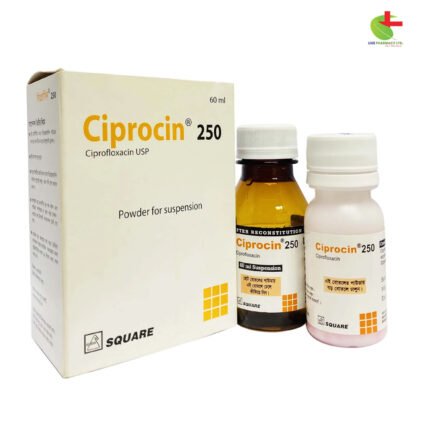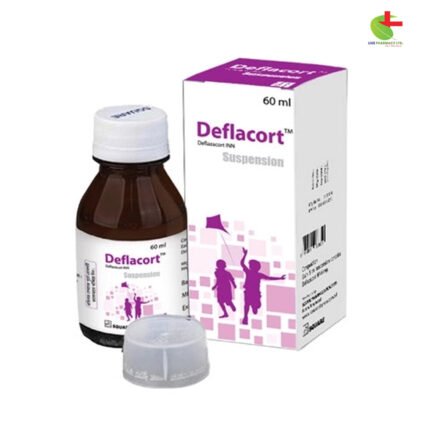Remac PFS
395.00৳ Pcs
- Discover Remac, a versatile medication tailored for bacterial infections like bronchitis, sinusitis, pneumonia, and skin infections.
- Powered by clarithromycin, Remac effectively targets susceptible organisms, offering relief with its well-tolerated formulation.
- Our pharmacy ensures optimal dosing and adherence to safety precautions, prioritizing your well-being.
- Trust Remac for effective treatment and peace of mind in managing various bacterial infections.
 Brand
Brand
|
Square Pharmaceuticals PLC |
|---|---|
 Generics
Generics
|
Clarithromycin |
 Type
Type
|
Suspension |
 Size
Size
|
60 ML |
Indications
Remac serves as an effective treatment for various conditions, including:
- Acute exacerbation of chronic bronchitis in adults caused by bacterial infection.
- Acute maxillary sinusitis.
- Community-acquired pneumonia.
- Pharyngitis or tonsillitis.
- Uncomplicated skin and skin structure infections.
- Acute otitis media in pediatric patients.
- Treatment and prevention of disseminated mycobacterial infections.
- Helicobacter pylori infection and duodenal ulcer disease in adults.
Pharmacology
Remac’s active ingredient, clarithromycin, operates by impeding protein synthesis in susceptible organisms, primarily by binding to the donor site on the 50S subunit of the bacterial ribosome. This action prevents translocation to the site, effectively inhibiting bacterial growth. It exhibits potency against most Gram-positive bacteria, Chlamydia, certain Gram-negative bacteria, and Mycoplasmas. Moreover, Remac demonstrates enhanced acid stability compared to erythromycin, resulting in improved tolerance.
Dosage & Administration
For adults, dosage recommendations vary depending on the condition being treated. Dosages range from 250 mg to 500 mg every 12 hours for durations typically spanning 7 to 14 days. Pediatric dosages are weight-based and administered every 12 hours.
Interaction
Remac interacts adversely with certain medications, including HMG-CoA reductase inhibitors, gastroprokinetic agents, ergot alkaloids, antipsychotics, and anti-gout agents. Additionally, caution is advised when using antiarrhythmics concurrently.
Contraindications
Remac is contraindicated in patients with known hypersensitivity to clarithromycin, erythromycin, or any macrolide antibacterial drugs.
Side Effects
While generally well-tolerated, common side effects of Remac include nausea, vomiting, diarrhea, abdominal pain, stomatitis, glossitis, headache, and allergic reactions. Transient central nervous system side effects may also occur.
Pregnancy & Lactation
The use of Remac during pregnancy and lactation is not recommended due to limited data on its safety in these populations.
Precautions & Warnings
Special precautions should be taken in patients with QT prolongation, ventricular arrhythmia, hypokalemia, hypomagnesemia, significant bradycardia, or receiving certain antiarrhythmic medications. Monitoring for adverse reactions such as hepatitis and Clostridium difficile associated diarrhea is advised.
Use in Special Populations
Remac’s safety and efficacy have been established for various pediatric conditions, but caution should be exercised in children under certain age thresholds.
Overdose Effects
Overdose of Remac may lead to gastrointestinal symptoms and should be managed with supportive measures.
Therapeutic Class
Remac belongs to the macrolide class of antibiotics.
Storage Conditions
Store Remac in a cool, dry place, shielded from light and moisture. Reconstituted suspension should be used within specified timeframes and kept out of reach of children.













Reviews
There are no reviews yet.